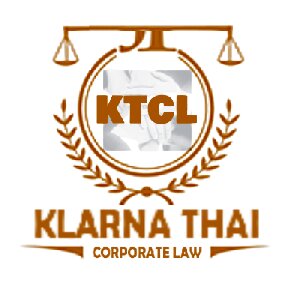Best Faith-Based Law Lawyers in Watthana
Share your needs with us, get contacted by law firms.
Free. Takes 2 min.
List of the best lawyers in Watthana, Thailand
About Faith-Based Law in Watthana, Thailand
Faith-Based Law in Watthana, a vibrant district of Bangkok, refers to the integration and recognition of religious practices and beliefs within the broader Thai legal framework. While Thailand’s national legal system is primarily secular and based on civil law, aspects of religious law, particularly Buddhist and Islamic principles, are respected in personal and community matters. In Watthana, which is known for its diverse communities and places of worship, Faith-Based Law often comes into play regarding family matters, ceremonial law, and certain community protocols where religion plays a significant role.
Why You May Need a Lawyer
Anyone navigating issues influenced by religious teachings or customs in Watthana may require specialized legal advice. Common situations include marriage and divorce proceedings where religious rites are involved, inheritance and succession matters guided by religious principles, and disputes arising from religious property or charitable trusts. Legal professionals experienced in Faith-Based Law help individuals and organizations understand the boundaries of secular and religious law, ensuring that actions comply with both civil statutes and faith-based expectations. Consulting a lawyer is also important when documents referencing religious obligations need formal recognition by Thai authorities or when conflicts arise between different faith communities.
Local Laws Overview
Watthana falls under the jurisdiction of Thai national laws, but local practices often reflect the district’s multicultural environment. Key laws to be aware of include the Thai Civil and Commercial Code, which governs personal and family relationships, as well as the Act on the Organization of Islamic Law for Islamic communities, primarily applicable in the southern provinces but sometimes informally referred to in Muslim community matters in Bangkok. Buddhist principles can also inform mediation and dispute resolution. Religious organizations are generally permitted activity if they are registered and conform to public order and morals. Property ownership, ceremonies, religious education, and charitable operations must all align with both administrative requirements and religious customs.
Frequently Asked Questions
What is Faith-Based Law in Watthana, Thailand?
Faith-Based Law covers legal matters influenced by religious beliefs, rituals, and community practices within Watthana. While the national laws are secular, religious considerations can affect certain civil proceedings and community disputes.
Can marriages conducted under religious rites be legally recognized?
Religious wedding ceremonies can be meaningful for the community but are only legally recognized in Thailand if the marriage is also registered with local civil authorities.
How are religious disputes typically resolved?
Disputes may first be mediated within the religious community or by faith leaders. However, if no resolution is found, the matter can escalate to civil courts, which will consider both national laws and the parties’ religious backgrounds.
Does religious law override Thai civil law?
No. National law always prevails in Thailand. Faith-Based practices are respected wherever possible, but any conflict between religious law and Thai statutes will be resolved in favor of the latter.
Are religious holidays and customs protected by law?
Yes, many religious customs and major holidays are officially recognized and respected. However, protection is limited to non-contradiction with public order, safety, and the rights of others.
Can foreign residents practice their religion freely in Watthana?
Generally, yes. Thailand promotes religious harmony and diversity, and Watthana is known for its acceptance of various faiths. All religious practice must still comply with local laws.
How does Faith-Based Law affect inheritance and succession?
Inheritance matters are governed by the Civil and Commercial Code, but religious principles may influence community expectations or informal agreements. Only Islamic communities in specific southern regions have formal religious court systems for succession.
Are there legal restrictions on building places of worship?
Yes. Any construction must comply with municipal zoning, building codes, and public order requirements. Religious organizations must also be registered for legal recognition.
What should I do if my religious rights are violated?
Seek advice from a legal professional, or speak with local authorities or human rights organizations. Thailand has various complaint mechanisms for civil rights issues.
Where can I get legal help for Faith-Based Law issues?
There are specialized lawyers and firms with experience in religious and civil law, as well as governmental bodies and community organizations offering support and mediation.
Additional Resources
- Legal Aid Office of the Lawyers Council of Thailand - Ministry of Justice Thailand - Local Offices of Religious Affairs in Watthana District - Religious community centers and interfaith councils - Human Rights Commission Thailand - Nonprofit organizations supporting religious freedom and legal literacy
Next Steps
If you require legal assistance concerning Faith-Based Law in Watthana, begin by documenting your situation and collecting relevant documents. Consider scheduling a consultation with a lawyer experienced in both Thai law and the specific religious context involved. You can reach out to local legal aid centers or the Lawyers Council of Thailand for referrals. If your issue involves community practices, seeking initial mediation from trusted religious leaders may be helpful. Always ensure any agreements or resolutions are compatible with both religious customs and Thai civil law for enforceability and long-term security.
Lawzana helps you find the best lawyers and law firms in Watthana through a curated and pre-screened list of qualified legal professionals. Our platform offers rankings and detailed profiles of attorneys and law firms, allowing you to compare based on practice areas, including Faith-Based Law, experience, and client feedback.
Each profile includes a description of the firm's areas of practice, client reviews, team members and partners, year of establishment, spoken languages, office locations, contact information, social media presence, and any published articles or resources. Most firms on our platform speak English and are experienced in both local and international legal matters.
Get a quote from top-rated law firms in Watthana, Thailand — quickly, securely, and without unnecessary hassle.
Disclaimer:
The information provided on this page is for general informational purposes only and does not constitute legal advice. While we strive to ensure the accuracy and relevance of the content, legal information may change over time, and interpretations of the law can vary. You should always consult with a qualified legal professional for advice specific to your situation.
We disclaim all liability for actions taken or not taken based on the content of this page. If you believe any information is incorrect or outdated, please contact us, and we will review and update it where appropriate.










